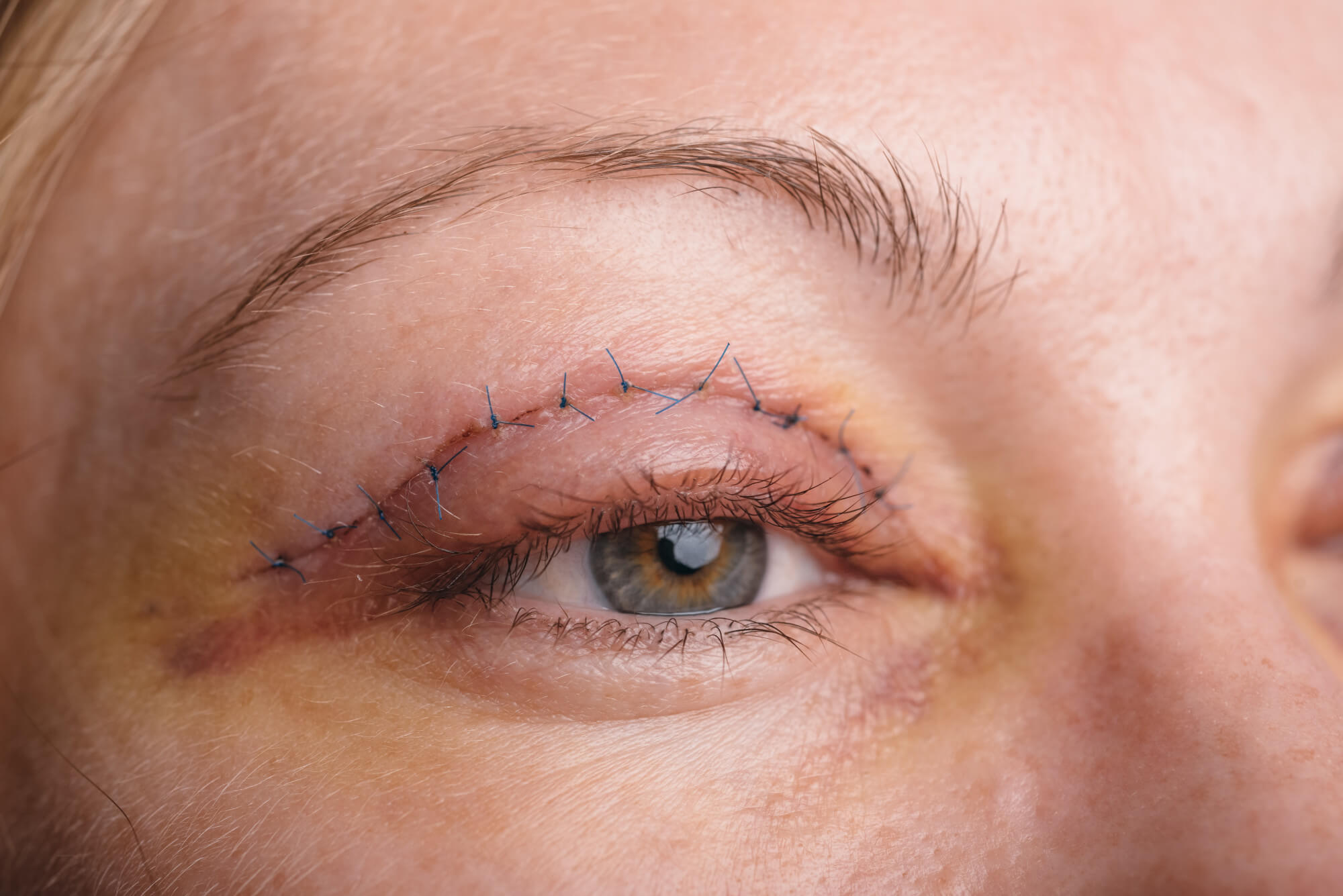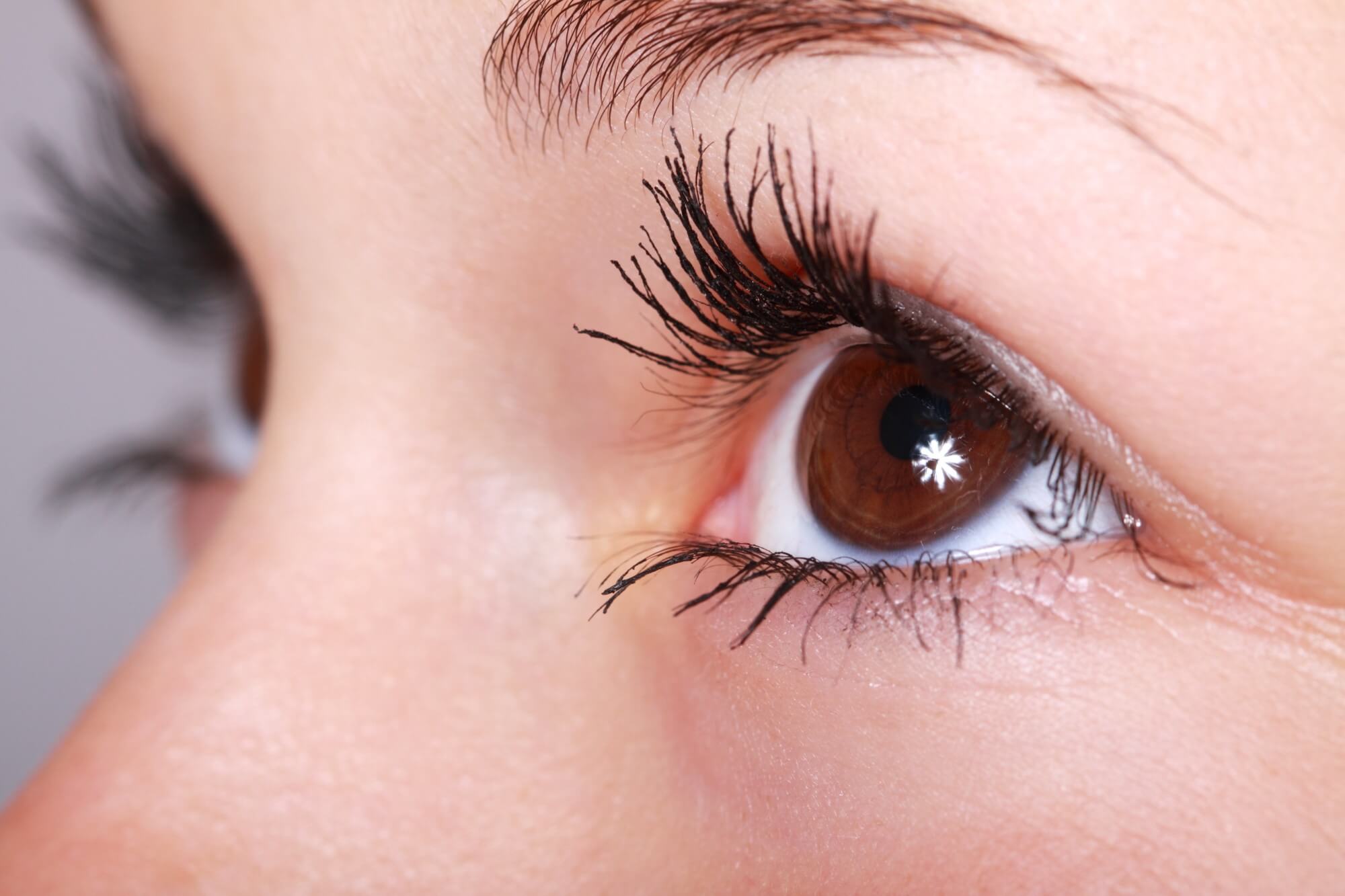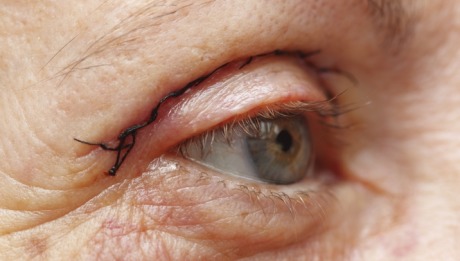Eyelid surgery is a treatment for drooping eyelids. It corrects a condition called ptosis or eyelid drooping. The surgery does not remove any skin from the eye area and usually does not affect vision in most cases.
This article will describe the benefits of eyelid surgery, what one should expect, and general post-surgery care instructions after an operation. It will also explain how you should take care of your eyes after surgery. This article is generally about helping patients feel comfortable before, during, and after this procedure.
Description of Operation

source: poppcosmeticsurgery.com
Surgeons perform this operation in an operating room. The patient has their eyes taped open so that the doctor can see their eyeball.
The patient is given anesthesia not to feel pain during the procedure. The anesthetics allow the surgeon to operate more efficiently and safely. The surgery takes about 45 minutes to an hour, depending on the case.
After the operation, patients should be able to resume normality or may need only a short time to recover from their surgical procedure.
Incision Sites
After eyelid surgery, the skin around the eye area will be numb. It typically takes about five days for the numbness to wear off. Patients should avoid rubbing these areas during this period because it will cause pain and scarring or permanent damage.
Patients should also keep their eyes clean and use cold packs to reduce the area’s swelling and pain caused by trauma. After surgery, recovery time for the bruising can last about 3-4 weeks.
Results

source: poppcosmeticsurgery.com
The results of eyelid surgery are immediate and can range anywhere from mild to severe, depending on the patient. Patients will generally have a more rested appearance and feel better than before. Most people think that they have had a successful outcome for this type of surgery since it is more cosmetic. The results will vary from person to person, depending on their underlying medical condition before the procedure.
Most mono-lidded people complain about difficulties with eyeliner, eyeshadow, and mascara techniques. However, eyelid surgery can correct these problems.
Surgery Risks
some of the risks associated with this procedure include the following;
1. Vision Loss
The eyelid operated on can be closed too much, decreasing the patient’s vision. It is essential to talk to the medical doctor who performed the surgery if you have any poor or reduced vision symptoms. The surgeon will correct the situation before any permanent damage occurs.
2. Bleeding
Bleeding can occur during or after the surgery due to rupture of blood vessels around the eyelid area. Without treatment, this can lead to permanent damage to these vessels and eventually cause vision problems.
3. Scarring

source: healthgrades.com
Many operations on the same eyelid can leave a scar that causes pain and makes it difficult for patients to sleep at night.
4. Excessive Swelling
Excessive swelling is caused by bruising that typically occurs after eyelid surgery. Some of the symptoms associated with excessive swelling include redness, pain, and blisters under the skin near the place of operation. It usually goes away within a few weeks.
5. A Patient May Experience Pain Inside or Around the Eyes Due to This Procedure
Patients should watch for these symptoms to ensure that their healing process goes as expected and nothing else happens to them.
6. Dislocation of the Eyeball
Surgery may leave the eyeball out of place. Patients should watch for symptoms such as a change in vision, excessive tears coming from their eyes, and pain around the eye that could mean that the eyeball dislocation. These symptoms require a visit from a medical professional to correct the problem as soon as possible to prevent permanent damage to the eye area.
7. Infection
One can be at risk of infection if the incisions around their eyes are untidy. It can spread to other parts of the body and make it difficult for the patient to heal.
8. Patients May Suffer Excessive Dryness in the Eye

source: rowaneyecenter.com
It occurs when the eyeball is not taken care of during the recovery process. A patient should get treatment as soon as any symptoms are recognized.
8. Patients May Suffer Excessive Dryness in the Eye
It may affect the way you blink, but this is usually not a problem.
10. Blindness
A patient’s eyes can become infected or swell when going through an operation like this or if they are not taken care of afterward. If left untreated, this could cause temporary or permanent blindness in the patient. Temporary conditions should go away after a few weeks following surgery.
In some situations, surgeons perform eye surgeries in conjunction with other procedures. It means that the surgeon may need to cut a nerve, and it might cause you to feel pain when you blink. Blinking is an essential part of the eye as it keeps saltwater circulating through the surrounding tissue so that your eyes do not dry out and become sore or red.
Postoperative Care

source: pinterest.com
After eyelid surgery, patients should pay close attention to their eye area for at least the first few days. They should keep their eyes clean and use cold packs on them to reduce swelling and pain caused by trauma to the area.
It is important to note that the patient’s vision could change after eyelid surgery, so they will need to be patient and follow up with the doctor if they notice any changes in their vision while they are recovering.
Many of the risks associated with eyelid surgery are preventable. If you are considering having this type of operation, discuss it with your doctor to know if you have any underlying conditions that could impact the results you will get from the surgery.
It is advisable that the patients take care of their eye area for some more time following surgery if they have had any blepharoplasty done on their eyes before. In this case, the patient should ask the doctor about precautions they will need to take to ensure that the procedure does not compromise their health.





